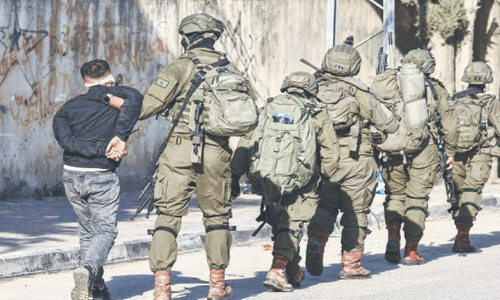 |
In an official function held in the ancient city of Taxila, this past Saturday, the Federal Minister for Religious Affairs Sardar Mohammad Yousuf had some important news for the country.
Speaking to the press at Wah Cantonment, the Minister announced that groundwork was complete for the introduction of Arabic as a language in the secondary school curriculum.
The project would begin in the Khyber Pakhtunkhwa province, the Minister added, before going to discuss the arrangements that the Government has been making to facilitate the upcoming Hajj pilgrimage.
The project of Arabicising Pakistan, the painstaking wiping away, hammering out breaking off and denunciation of all parts of our past that do not fit into an imagined always Muslim-ness is not a new one.
The reconstruction of old leaders to fit into new guidelines of piety and purity, the banning of customs, the destruction of structures, the dereliction of art are all part of a long list of things to do to accomplish the project of becoming more 'authentically religious'.
Adding Arabic as the fourth language, on top of English, Urdu and a regional language thus fits into the process of purification currently underway.
It would, however, be wrong to pin this latest development simply to the yearning for Arabness that preoccupies so many Pakistanis. Its practical usage, unrelated to religion, is the fact that Pakistan is one of the most prominent suppliers of manual labour to the Arab speaking GCC countries.
According to the International Organisation of Labour, Pakistan is the second among South Asian nations sending migrant workers abroad. Nearly 7 million Pakistanis have left the country in recent years for the purpose of finding a job and 96 per cent of them make their way to the GCC countries, closely followed by Saudi Arabia.
Also read: A murder in Makkah
Once in Saudi Arabia or Dubai or Abu Dhabi, theirs is a grim reality. The kifalah system of sponsorship that gets them there insures that they are already deeply in debt before they ever start working.
As has been reported in a recent front page story in the New York Times, the workers usually do menial jobs in construction, garbage disposal, cleaning, ground crews and such. They live in labour camps in deplorable conditions, sometimes 10 or 15 in a single room, with any clothes they may wear and any food they may eat crammed in between the bunks.
Often, employers refuse to pay them, or pay them months after they are due. The recruiters to whom they owe money take anything they get, before any money can be sent home. If they complain too much, there is always the prospect of arrest. They receive no legal advice, no lawyers and no leniency. Punishments are the only certainty.
Also read: HR groups call for boycott of Qatar's 2022 World Cup
Given these conditions, a few ideas emerge regarding what sort of Arabic must be taught to Pakistani students, who if they are lucky, can join the ranks of others in Gulf countries where glorious things called jobs still exist.
Given the large numbers doing ground keeping work or trash collection, perhaps a rudimentary vocabulary in communicating things like, “May I empty this trash can” or “ I have polished this floor” could add to their skills.
Even more crucially, the Arabic that is planned must include at least a few lessons on how to reclaim owed wages and scold unscrupulous employers. A Pakistani construction worker, that can, in Arabic ask why three months of wages have not been paid, and why his passport is being withheld, is far more powerful, than a Pakistani that is mute, silent and accepting of all the abuses that are mercilessly heaped on him by his Arabic speaking masters.
Finally, some Arabic stipulations for emergency situations, such as the one I recounted in this blog a few months ago, when a young man from Khyber Pakhtunkhwa was found dead in Makkah; in situations such as that one, it would have been useful if the Pakistanis working with him had been able to ask, “who killed my friend” and “where can I find his body”.
In the particular case, Saudi officials insisted that the young man had simply committed suicide. That it is said, is the usual excuse given to the deaths of poor Pakistani labourers, so that restitution payments are not owed to their families.
In the proposed new Arabic curriculum, it would be useful to teach the parents of such would be labourers to say, “My son did not commit suicide” or to be able to articulate in Arabic the following simple request:
“I want justice for my son, who was Pakistani”.
Rafia Zakaria is an attorney and human rights activist. She is a columnist for DAWN Pakistan and a regular contributor for Al Jazeera America, Dissent, Guernica and many other publications.
She is the author of The Upstairs Wife: An Intimate History of Pakistan (Beacon Press 2015). She tweets @rafiazakaria

































